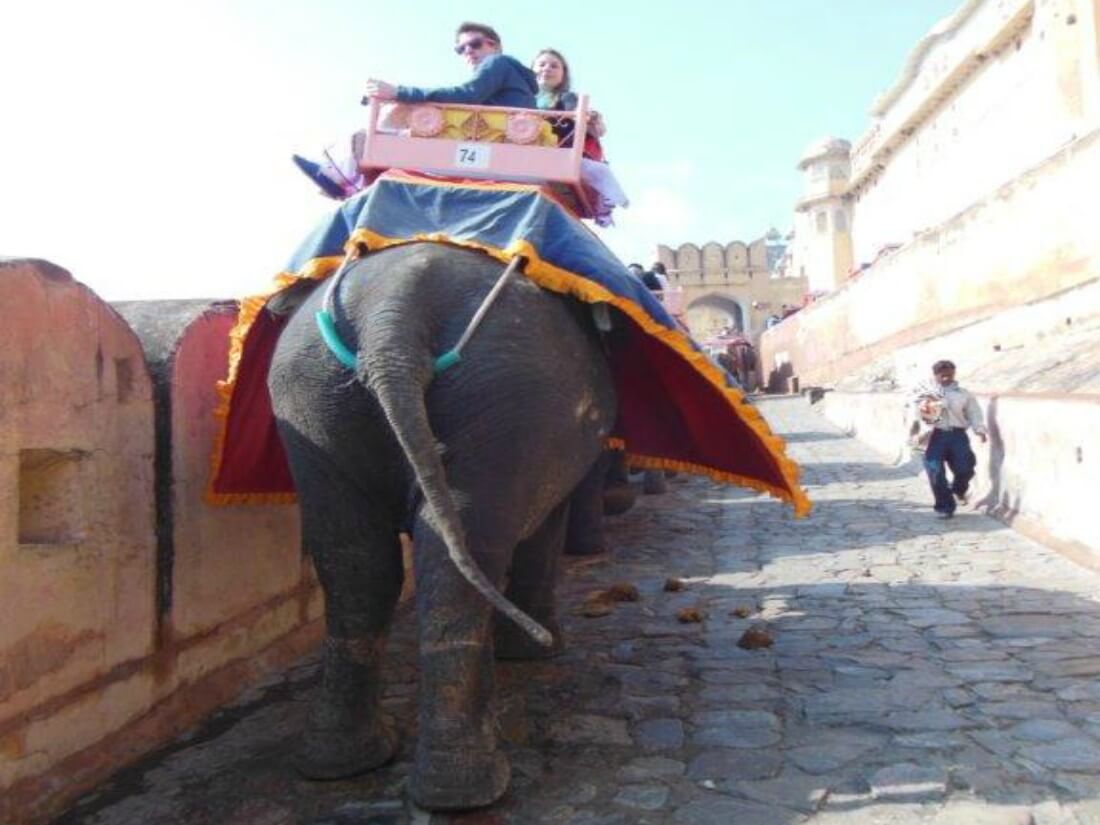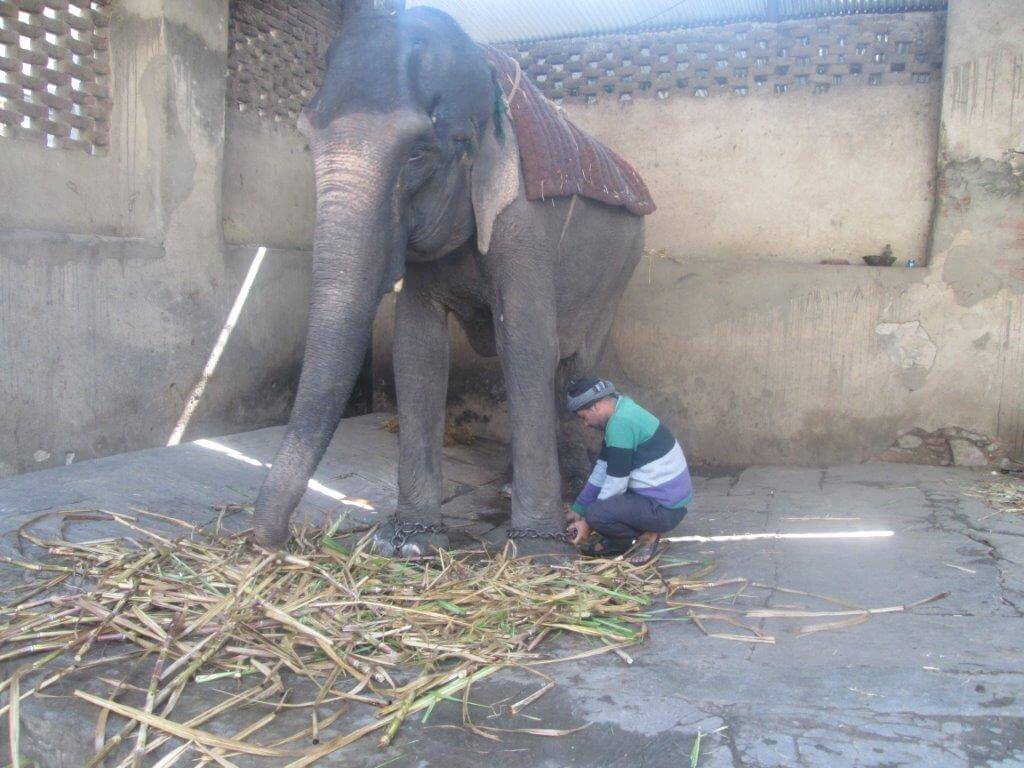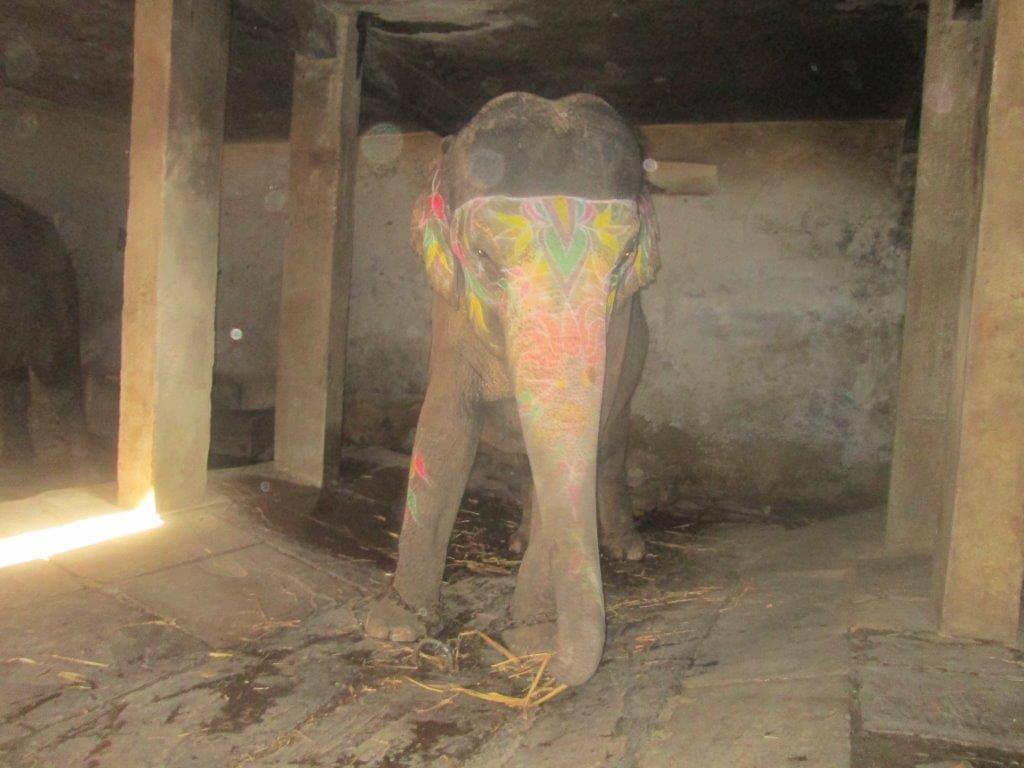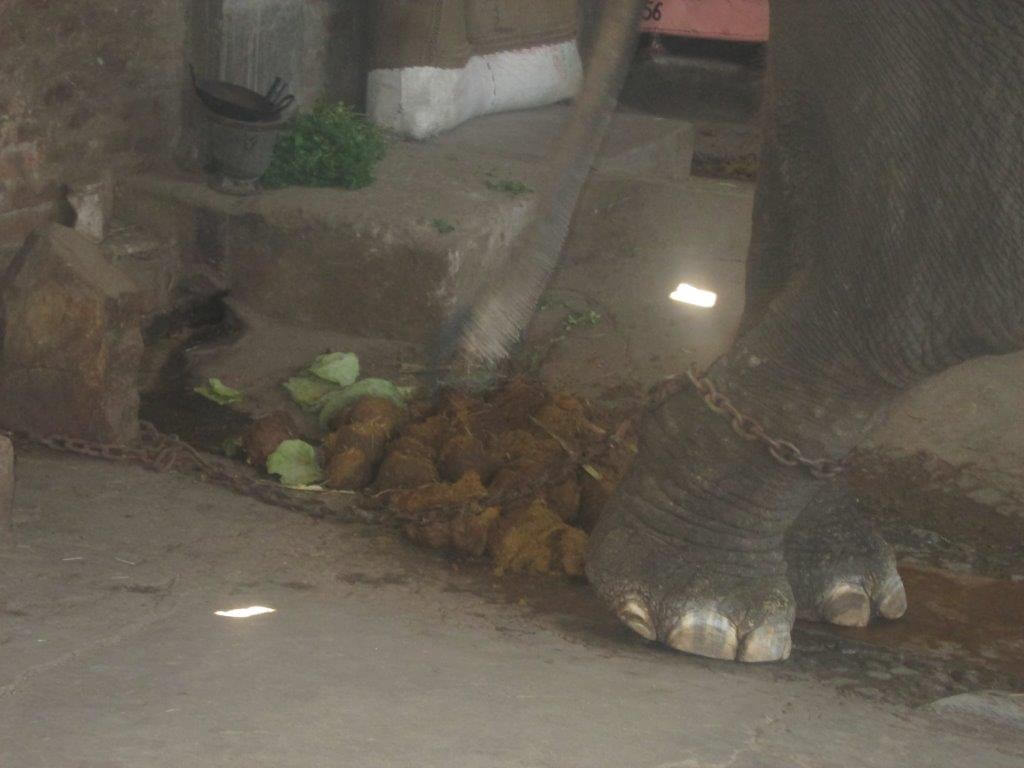UN INT Intro Text w/ Centered Large Responsive Image - *Important Note* You must UNLINK this shared library component before making page-specific customizations.
One of the main reasons why people from all over the world travel to India is to appreciate the unique and renowned wildlife. But the veil has been lifted on the physical and psychological abuse endured by elephants who are forced to give rides to tourists, and it's tarnishing that country's reputation.

It's been revealed that mahouts (handlers) beat elephants with weapons and further traumatize these gentle animals by routinely chaining them, forcing them to perform grueling work, neglecting their injuries, and subjecting them to violence, malnourishment, and dehydration. In fact, one tourist recently filed an official cruelty complaint after witnessing handlers assaulting an elephant for 10 minutes when the suffering animal tried to escape at the Amber Fort near Jaipur, Rajasthan. Though the majority of Indians are Hindus who worship Lord Ganesha and consider elephants sacred, these animals live in fear and agony in the tourist industry. Those who have painful open wounds or impaired vision aren't even allowed to rest. They're forced to carry humans on their backs in the oppressive heat by men who threaten them with rods and ankuses, sticks with a sharp metal hook on one end.

Tourists don't come to India intending to harm wildlife, but elephant rides are inherently cruel. An inspection authorized by the Animal Welfare Board of India and conducted by veterinarians and experts from PETA India, Animal Rahat, Wildlife SOS, and the Centre for Studies on Elephants at the College of Veterinary and Animal Sciences in Mannuthy revealed that emaciated elephants with painful foot problems were used for rides; housed on hard, concrete floors; and sometimes chained with spiked hobbles. Handlers even pierced some animals' sensitive ears and drilled holes into their tusks, maiming them for life. The inspection also found invalid ownership certificates, in apparent violation of Indian animal-protection laws.


Even though India's Wildlife (Protection) Act, 1972, prohibits the capturing of elephants, these sacred animals are torn away from their families, beaten into submission, and made to carry tourists against their will. They're highly social animals who spend their entire lives with their families in the wild. They can walk up to 50 kilometres per day to forage for food, they work together to solve problems, and they rely on the wisdom, judgement, and experience of their eldest relatives.
It's time to protect India's sacred wildlife and put an end to inhumane elephant rides. You can help by sending a message to India's minister of tourism.